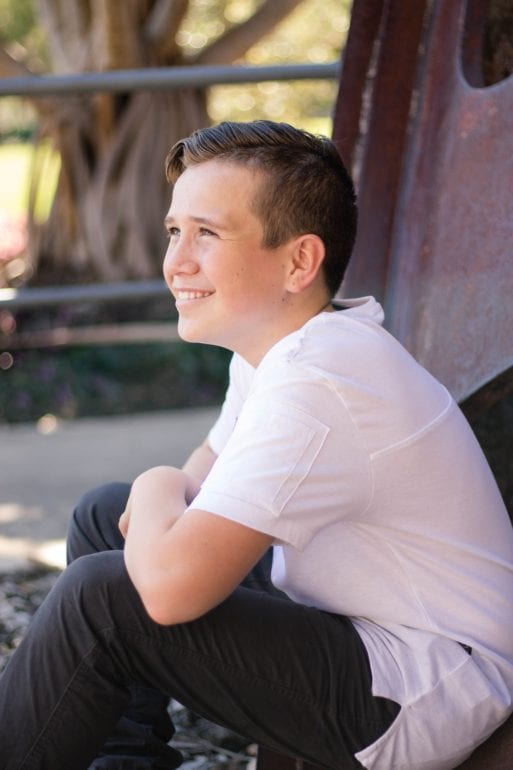
This is Sophie’s story as told by Jeanette Summers. Our “Opening Our Hearts” stories are based on people’s real-life experiences. By sharing these experiences publicly, we hope to help our readers feel less alone in their grief and, ultimately, to aid them in their healing process. In this story, Sophie talks about her family’s grief surrounding her 19-year-old nephew’s fatal drug overdose.
My 19-year-old nephew, Danny, died of a heroin overdose. He was my brother Jim’s son, born to a mother who cared less about her children than she did about the income they would bring in from the state.
Jim’s high-school girlfriend, Kelly, became pregnant with Danny after she had been dating my brother for only a few months. From the beginning, it was apparent that she had ulterior motives. At the time, the state of Michigan (where she and my brother lived) paid a cash stipend to single mothers for every child they had if they could prove financial need. Kelly knew this: Her own mother had figured out how to play the system expertly, having a gaggle of dad-less kids of her own. Kelly followed in her footsteps, treating her children like cash-cows — one-way tickets to easier living — at the expense of naïve young men like my brother.
Jim was appalled by the way his son was being treated and decided to try to gain custody.
Kelly had little interest in mothering, and her instincts were questionable from the start. She put Kool-Aid in Danny’s baby bottle so his blood sugar would spike and then drop abruptly, sending him into a deep, soundless sleep. Jim was appalled by the way his son was being treated and decided to try to gain custody. He told my parents, “I don’t want any Christmas gifts this year. I want money so I can get a DNA test to prove that I’m Danny’s father.”
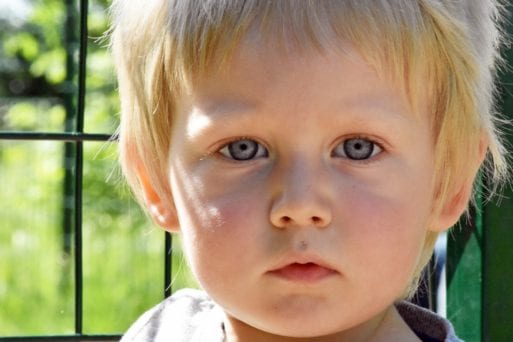
Danny was an unhappy toddler who suffered from his mother’s neglect.
My parents granted Jim’s wish, and he got the test, which showed that he was, indeed, Danny’s biological dad. It took some time, but eventually Jim was awarded sole custody of his son. After that, Danny saw his mother no more than a handful of times a year.
A snapshot of Danny as a child is tattooed on the inside of my mind: He’s sitting by a window in the lake house, waiting for his mother to pick him up for a visit as eagerly as a puppy tied up in front of a store waiting for his owner’s return.
I left Michigan before Danny was born, so I never got to know him very well. But I did spend time with him on holidays and during summers at my grandparents’ country lake house. A snapshot of Danny as a child is tattooed on the inside of my mind: He’s sitting by a window in the lake house, waiting for his mother to pick him up for a visit as eagerly as a puppy tied up in front of a store waiting for his owner’s return.
I also remember another time when Danny had just returned from spending a week with Kelly during his summer vacation. The phone rang, and Danny said, “If that’s my mom, tell her I don’t want to talk to her.” Danny later explained that Kelly and her new husband had a fridge stocked with fresh groceries, but they barely let him have any food. Danny was the kind of kid who was hurt very easily, and it was obvious their neglect hurt him very much. His emotional fragility stemmed, no doubt, from having a mother who obviously wanted very little to do with him.
Hearing my nephew use this term in reference to the man who raised me made my heart swell with tenderness and made me feel more connected to this boy than I’d ever felt before.
I do have a few happy memories, though. In one, Danny and I were looking through an old photo album, and Danny spotted a picture of my father as a younger man and yelled “Hey, look! That’s Grandpa!” I’d never thought of my dad as a grandfather before. Hearing my nephew use this term in reference to the man who raised me made my heart swell with tenderness and made me feel more connected to this boy than I’d ever felt before. Another time, Danny had just gotten out of school after his last day of sixth grade. He was jumping up and down as if he were on a pogo stick, shouting, “School’s out! School’s out!” with his grin spanning the width of his little-boy face, his cheeks flushed with the kind of joy we only experience in childhood — before life dulls our senses, making colors a little less bright, ice cream a little less delicious, Christmas, our birthdays and summer vacations a little less exciting.
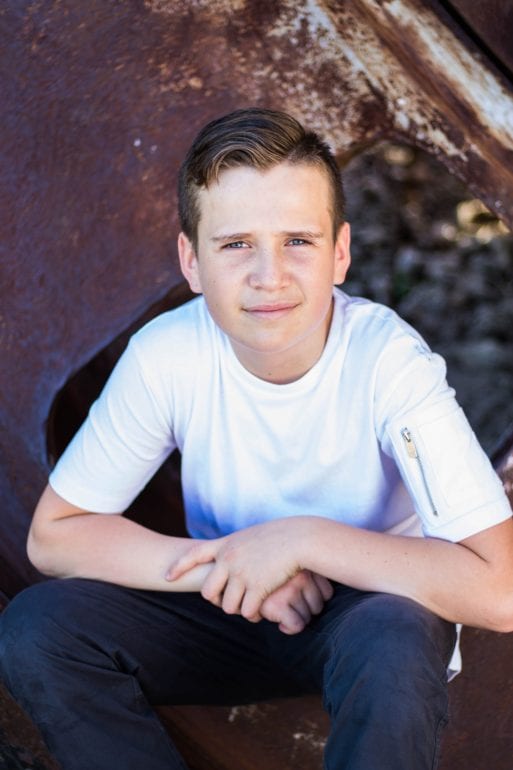
Danny was hurt very easily, possibly because he knew his mother cared little about his welfare.
But one particular occasion stands out in my memory above all others: I’d flown from New York, where I lived with my husband, to Michigan for the wedding of my other brother, Charlie. Hours before my husband and I were supposed to fly home, my mother called. “There’s been a terrible accident at the Detroit Airport,” she said. “The whole expressway is shut down. But I know a back route.” Knowing we’d need extra time to get to the airport if we had any hope of making our flight, my mother, husband, and I piled into the car straight away. Danny came along for the ride. As we drove, we tuned into a local radio station, which was covering the plane crash. All six crew members, 148 of the flight’s 149 passengers, and two people on the ground were dead. There was only one survivor: a 4-year-old girl, left injured, orphaned, and in critical condition.
“Where are all the dead bodies?” he asked, a mixture of titillation and disappointment flashing in his 12-year-old eyes.
When we finally made it to passenger drop-off, Danny — who’d sat listening in rapt awe — pressed his face to the window glass. “Where are all the dead bodies?” he asked, a mixture of titillation and disappointment flashing in his 12-year-old eyes.
I could never have guessed then that seven short years later, Danny would wind up sealed in a body bag.
I was living in San Francisco when I heard my mother’s message on my answering machine: “Danny is dead,” she said, her voice choked with a stifled sob. When I called her back, she told me what had killed him: a heroin overdose. I was shocked. Granted, I didn’t know my nephew well, but no one in the family — except Jim — had any inkling that Danny had been toying with drugs. Apparently, he’d been playing with matches for no longer than a year by the time that he — metaphorically speaking — set himself on fire.
So, one bone-chilling winter afternoon, he and three of his friends drove up to the house and went on a frenzied drug binge.
Here’s how it happened: My parents, who had inherited the Michigan lake house, sold it to Jim and moved to Florida. Jim hadn’t fully begun living at the lake house yet, and Danny, who was 19 years old, knew it was empty most of the time. So, one bone-chilling winter afternoon, he and three of his friends drove up to the house and went on a frenzied drug binge. It was there that Danny overdosed.
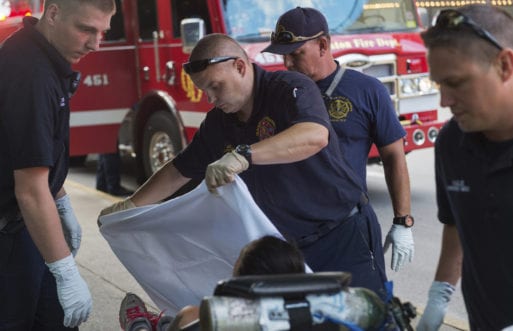
When first responders arrived, Danny was in severe distress. By the time his father arrived at the hospital, he had died.
Credit: Cincinnati.com
Danny’s friends, unable to deny his purple lips and erratic heartbeat, sensed that Danny was dying and found the good sense to call an ambulance despite their drug-induced haze. Danny’s uncle Charlie (my brother) was living down the street at the time. When he heard the sirens bleating, he knew something was terribly wrong. This was a desolate back road set deep in Michigan’s sparsely populated countryside. Nothing ever happened there; the sirens couldn’t be for anyone but his nephew.
“I don’t want to see him,” he said, a tremor fluttering in his voice. “Is that okay?”
Charlie drove straight to the hospital. Jim arrived as soon as he could, but it was too late. His son — his one and only child — had already been pronounced dead. “Would you like to see him?” the doctor asked. Charlie said yes — he wanted and needed to see his nephew’s body. But Jim couldn’t bear it. “I don’t want to see him,” he said, a tremor fluttering in his voice. “Is that okay?”
I’m not sure of how or why — perhaps Danny had a premonition that he’d die young, or even a wish to die young — but at some point, he’d mentioned to his father that he wanted to be cremated after he died. Jim, who didn’t want to argue with Kelly about what was to be done with their 19-year-old’s corpse, wasted no time. He immediately had his son’s flesh and bone turned to ash. I was the one who divided the ashes up: Kelly would get half, and Jim would keep the other half.
It’s been 25 years since Danny’s death. Jim still keeps what remains of his boy tucked away in a corner of his bedroom closet.
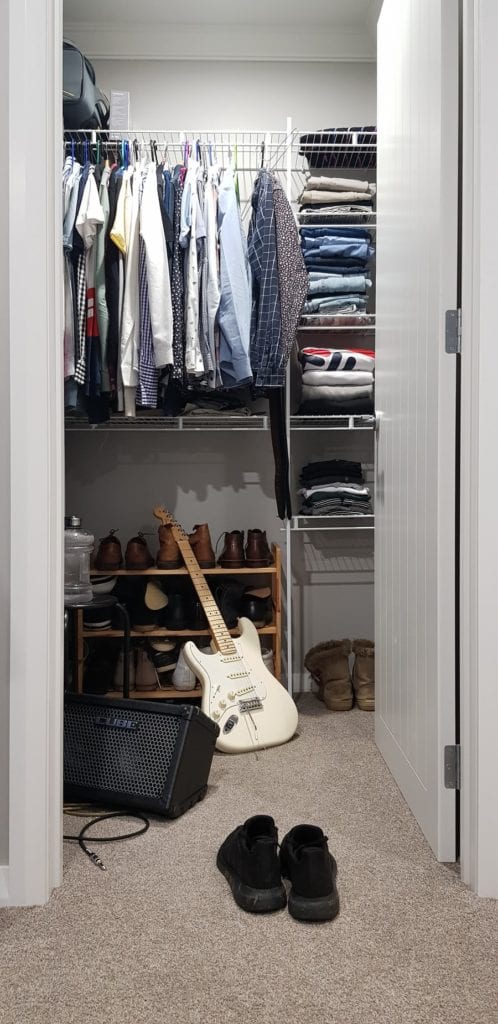
My brother had intended to scatter Danny’s cremation ashes, but he was
unable to let them go. My heart twisted for my brother when I noticed they
are in the corner of his closet.
Grief is a mysterious and powerful force. It can inflict a sharp, crippling, pain or a dull, slow-burning ache — one that creeps insidiously into of our lives, surfacing at the strangest of times and in the strangest of ways. Grief can tear families apart, but it can also draw them closer together.
I had a sense that my mother, father, two brothers and I were wrapped in a soft, white hug — encased in a giant, insulated snow-globe: the safest, most protected place on Earth.
Right after Danny died, I hopped on a flight to Michigan to be with my family. I remember staying at the lake house on the night I arrived — looking at the walls and floorboards that had witnessed generations’ worth of my family’s most cherished memories and my nephew’s dark final hours. It was snowing outside. I had a sense that my mother, father, two brothers and I were wrapped in a soft, white hug — encased in a giant, insulated snow-globe: the safest, most protected place on Earth. We’d been stunned into silence by the unspeakable horror that had afflicted our family. But here we were, clinging to what remained: each other. And in that, there was beauty. There was grace.

 My Nephew Died of a Fatal Drug Overdose
My Nephew Died of a Fatal Drug Overdose


 Debating Medical Aid in Dying
Debating Medical Aid in Dying
















